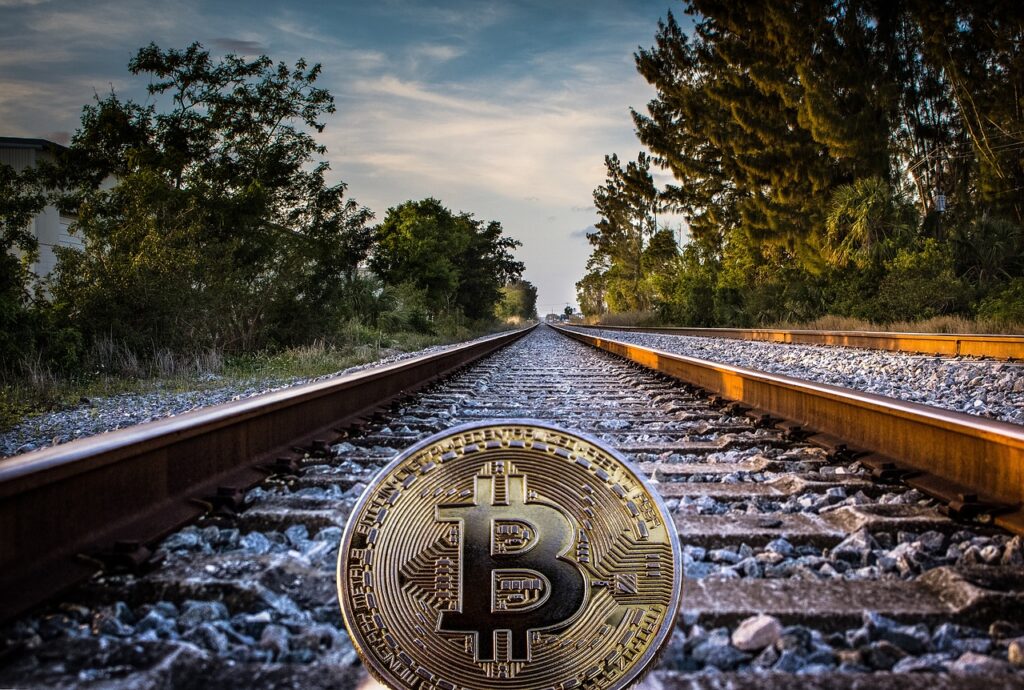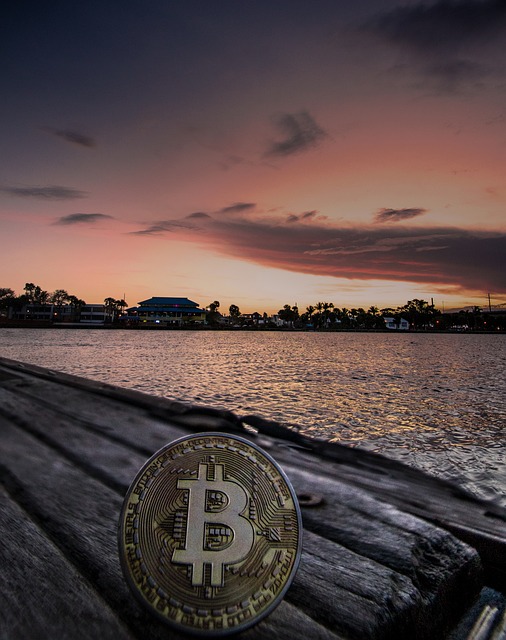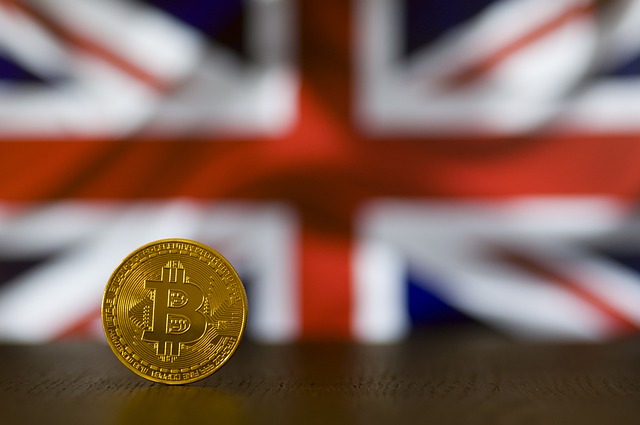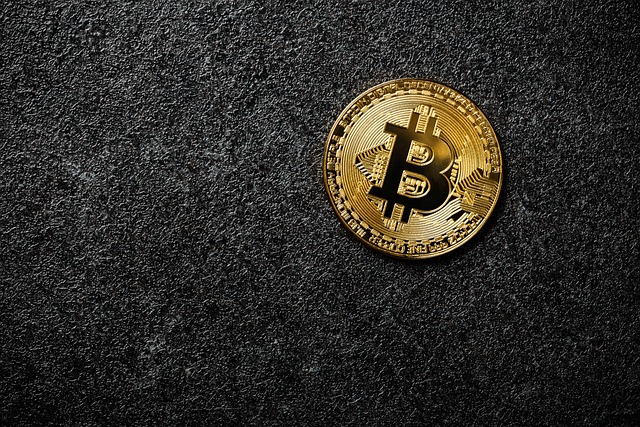Risk and Reward: Navigating Decentralized Finance Safely
Risk and Reward: Navigating Decentralized Finance Safely

Decentralized Finance: Exploring a New Frontier
In recent years, decentralized finance, commonly known as DeFi, has emerged as a new frontier in the world of finance. Traditional financial systems are built on centralized authorities, but DeFi is challenging this model by utilizing blockchain technology to create a decentralized ecosystem. This innovative approach allows users to access financial services without relying on intermediaries like banks or other financial institutions.
One of the key characteristics of DeFi is the use of smart contracts, which are self-executing agreements that automatically execute transactions once certain conditions are met. This eliminates the need for intermediaries and reduces the possibility of fraud or manipulation. With DeFi, individuals have the freedom to participate in various financial activities, such as lending, borrowing, and trading, all within a secure and transparent environment. As DeFi continues to gain traction, it has the potential to revolutionize traditional finance and empower individuals to have greater control over their financial activities.
The Rise of Decentralized Finance
Decentralized finance, also known as DeFi, has been making waves in the financial world in recent years. With the rise of blockchain technology, individuals are increasingly turning to decentralized platforms to manage their financial activities. What sets DeFi apart is its ability to provide financial services without the need for intermediaries such as banks or other traditional financial institutions. This newfound freedom has opened up a plethora of opportunities for both investors and borrowers alike.
One of the main reasons for the rise of DeFi is its potential for financial inclusivity. With traditional financial systems, many individuals have limited access to banking services due to various factors such as geographical location, lack of identification, or low income. However, DeFi platforms have the potential to reach individuals who have been previously excluded from mainstream financial services. This inclusivity is not only beneficial for individuals, but it also has the potential to boost economic growth and development by providing financial opportunities to previously underserved populations.
Without the need for intermediaries, DeFi also offers the potential for greater transparency and security. Transactions on decentralized platforms are recorded on a public blockchain, making them traceable and auditable. This level of transparency reduces the risk of fraud or manipulation, providing users with more confidence in their financial transactions. Additionally, the use of smart contracts, which are self-executing contracts with the terms of the agreement directly written into code, ensures that transactions are carried out as intended, minimizing the risk of human error or malfeasance.
Overall, the rise of DeFi represents a new frontier in finance, one that offers potential benefits such as financial inclusivity, transparency, and security. However, it is not without risks. As with any emerging technology, there are challenges and potential pitfalls to consider. In the next section, we will delve into the basics of decentralized finance and explore its potential benefits further.
Understanding the Basics of Decentralized Finance
Decentralized Finance, also known as DeFi, is a rapidly growing trend in the world of finance. Unlike traditional financial systems that rely on centralized intermediaries like banks, DeFi operates on blockchain technology and smart contracts. This means that transactions and financial services are executed directly between participants, without the need for middlemen.
One of the key features of DeFi is its accessibility. Anyone with an internet connection can participate in decentralized finance, regardless of their location or financial standing. This opens up a world of opportunities for individuals who are otherwise excluded from traditional financial systems. Moreover, DeFi offers a wide range of financial services, including lending, borrowing, trading, and investing, all within a decentralized ecosystem. This eliminates the need for intermediaries and reduces costs, making financial services more affordable and efficient.
In conclusion, understanding the basics of decentralized finance is crucial for anyone interested in exploring this new frontier. By leveraging blockchain technology and smart contracts, DeFi has the potential to revolutionize the way we engage with financial services. However, as with any emerging technology, it is important to carefully consider the benefits and risks associated with decentralized finance. In the following sections, we will delve deeper into the potential benefits and risks of DeFi, as well as strategies to safeguard your investments in this fast-growing sector.
Identifying the Potential Benefits of Decentralized Finance
Decentralized finance (DeFi) has rapidly gained popularity in recent years, thanks to its potential benefits that attract individuals and institutions alike. One of the main advantages of DeFi is its ability to provide financial services without the need for intermediaries, such as banks or traditional financial institutions. This disintermediation allows for a more inclusive and accessible financial system, as anyone with an internet connection can participate in DeFi protocols.
Another noteworthy benefit of DeFi is the potential for higher returns compared to traditional financial products. By participating in DeFi protocols, individuals can earn passive income by lending or staking their digital assets. The decentralized nature of DeFi also opens up opportunities for investors to explore new markets and gain exposure to niche assets that may not be available in traditional finance.
Furthermore, DeFi has the potential to enhance financial privacy and security. Traditional financial systems often require individuals to disclose personal information and rely on centralized platforms that can be vulnerable to hacking or data breaches. With DeFi, transactions are recorded on public blockchains, offering transparency and traceability, while protecting user identities.
In conclusion, decentralized finance brings numerous potential benefits, including improved accessibility, higher returns, and enhanced privacy and security.


Exploring the Risks Associated with Decentralized Finance
While decentralized finance (DeFi) offers exciting prospects for innovation and financial inclusion, it is important to recognize the associated risks. One of the primary risks in DeFi is the potential for smart contract vulnerabilities. Smart contracts, which underpin many DeFi applications, are prone to bugs or coding errors that can be exploited by malicious actors. These vulnerabilities can lead to the loss of funds or personal information, posing a significant risk to participants in the DeFi space.
Another risk to consider is the volatility of decentralized assets. Unlike traditional financial markets that are governed by centralized institutions, DeFi operates on a decentralized network, making it susceptible to dramatic price movements. This volatility can be amplified by factors such as liquidity constraints, market manipulation, or unforeseen global events. As a result, investors and users of DeFi platforms must be prepared for the potential loss of value in their investments. It is crucial to conduct thorough research, understand the nature of the assets involved, and practice responsible risk management strategies when engaging in DeFi activities.
• Smart contract vulnerabilities: Smart contracts used in DeFi applications can have coding errors or bugs that can be exploited by malicious actors, leading to loss of funds or personal information.
• Volatility of decentralized assets: Unlike traditional financial markets, DeFi operates on a decentralized network, making it susceptible to dramatic price movements. Factors like liquidity constraints, market manipulation, or global events can amplify this volatility.
• Potential loss of value: Investors and users must be prepared for the potential loss of value in their investments. Thorough research, understanding the nature of assets involved, and practicing responsible risk management strategies are crucial when engaging in DeFi activities.
Safeguarding Your Investments in Decentralized Finance
Decentralized finance (DeFi) has gained significant popularity in recent years, attracting both seasoned investors and newcomers looking to diversify their portfolios. While the potential benefits of DeFi are enticing, it is crucial to safeguard your investments in this emerging field. One way to protect your funds is by conducting thorough research before investing in any DeFi project.
Before committing your hard-earned money, take the time to evaluate the project’s team, its transparency, and its track record. Look for information on the project’s website, social media channels, and online forums. Pay close attention to the project’s whitepaper, which outlines its goals, technology, and roadmap. This will give you a better understanding of the project’s potential and whether it aligns with your investment objectives.
Smart Contract Audits: Ensuring Security in Decentralized Finance
Smart contract audits play a crucial role in ensuring the security and credibility of decentralized finance (DeFi) platforms. With the rise of DeFi, it is essential for investors and users to have confidence in the technology they are engaging with. Smart contracts, which are self-executing agreements with the terms of the agreement directly written into code, are at the core of DeFi applications. However, they also present potential vulnerabilities that can be exploited by hackers.
By conducting thorough smart contract audits, potential security flaws can be identified and rectified before they are exploited. Auditors meticulously examine the code, reviewing every line to ensure its accuracy and safety. They assess the contract for potential vulnerabilities, identifying potential points of failure or loopholes that hackers could exploit. By leveraging their expertise and knowledge, auditors provide an additional layer of security and give users peace of mind when interacting with DeFi platforms. Smart contract audits are, therefore, crucial in maintaining the trust and integrity of the DeFi ecosystem.
Diversification Strategies for DeFi Investments
One key strategy for mitigating risks and maximizing potential returns in Decentralized Finance (DeFi) is through diversification. Diversifying your investments across different DeFi platforms and projects can help spread out the risks and increase your chances of finding successful ventures.
Not putting all your eggs in one basket is a mantra that holds true in traditional finance as well as in the world of DeFi. By diversifying your DeFi investments, you can reduce the impact of any potential losses from a single investment. This means allocating your funds across different DeFi protocols, such as lending platforms, decentralized exchanges, and yield farming projects. By doing so, you increase the likelihood of finding successful projects that can generate attractive yields and rewards. Additionally, diversification helps you navigate the ever-changing landscape of DeFi, which can be volatile and challenging to predict.
The Role of Governance in Decentralized Finance
Governance plays a vital role in the world of decentralized finance (DeFi), providing a framework for decision-making and ensuring the smooth operation of decentralized platforms. In the realm of DeFi, governance refers to the collective decision-making process through which participants have a say in the platform’s future direction, rules, and protocols. Unlike traditional financial systems that rely on centralized authorities, DeFi governance gives individuals the power to contribute to the decision-making process, creating a more inclusive and democratic financial ecosystem.
One of the key aspects of DeFi governance is the use of governance tokens. These tokens represent voting rights within the decentralized protocol, allowing holders to participate in decision-making. Whether it’s proposing a new feature, approving changes to the protocol, or voting on important matters, governance tokens enable individuals to actively shape the future of decentralized finance. The role of governance in DeFi goes beyond just decision-making; it also fosters transparency, accountability, and trust, as participants can actively monitor and influence the platform’s operations. As Decentralized Finance continues to gain traction and evolve, the role of governance becomes even more crucial in shaping the future of financial systems. By empowering individuals and increasing transparency, DeFi governance has the potential to revolutionize the traditional financial landscape, creating a more inclusive and democratic financial ecosystem for all.
Staying Informed: Keeping Up with the Latest Developments in DeFi
DeFi, short for Decentralized Finance, has been experiencing rapid growth and innovation in recent years. With new protocols, applications, and projects constantly being developed, staying informed is crucial for investors and enthusiasts alike.
One of the best ways to keep up with the latest developments in DeFi is by following industry news and publications. There are numerous websites, blogs, and forums dedicated to covering everything related to DeFi. These platforms provide regular updates, analysis, and insights on the latest trends, projects, and advancements in the space. By actively reading and engaging with these sources, individuals can stay informed about new protocols, partnerships, regulatory changes, and other important developments that may impact their investments or strategies.
In addition to news platforms, social media can also be a valuable source of information in the DeFi space. Twitter, in particular, has become a hub for discussions and announcements related to DeFi. Many project founders, developers, and influencers frequently share updates, insights, and upcoming events through their Twitter accounts. By following key figures and participating in relevant communities, individuals can stay on top of the latest happenings in DeFi. It’s important, however, to exercise caution and verify information from reliable sources, as social media can also be a breeding ground for misinformation and scams.
By proactively seeking out reliable sources of information and engaging with the DeFi community, individuals can stay informed about the latest developments in this rapidly evolving space. Keeping up with the news and staying connected with the community can help investors make more informed decisions and adapt their strategies accordingly. Whether through news platforms, forums, or social media, staying involved and informed is key to navigating the ever-changing landscape of DeFi.
What is decentralized finance (DeFi)?
Decentralized finance, also known as DeFi, refers to a new frontier in the financial world where traditional financial intermediaries are replaced by decentralized technologies and protocols. It aims to provide open and inclusive financial services to everyone, without the need for intermediaries like banks or brokers.
Why is decentralized finance becoming popular?
Decentralized finance is gaining popularity because it offers several benefits such as greater accessibility, transparency, and lower costs. It also provides users with more control over their financial assets and allows for innovation and experimentation in the financial sector.
How does decentralized finance work?
Decentralized finance relies on blockchain technology and smart contracts to create a transparent and open financial system. Users can interact with various decentralized applications (dApps) to lend, borrow, trade, or invest in digital assets. These transactions are executed automatically by smart contracts, eliminating the need for intermediaries.
What are the potential benefits of decentralized finance?
Some potential benefits of decentralized finance include financial inclusion, easy access to financial services, lower transaction costs, increased transparency, improved security, and the ability to earn passive income through various DeFi protocols.
Are there any risks associated with decentralized finance?
Yes, there are risks involved in decentralized finance. These risks include smart contract vulnerabilities, hacking incidents, regulatory uncertainties, market volatility, and the potential for loss of funds due to user errors or malicious actions. It’s important to research and understand the risks before getting involved in DeFi.
How can I safeguard my investments in decentralized finance?
To safeguard your investments in decentralized finance, it’s crucial to take security measures such as using hardware wallets, enabling multi-factor authentication, being cautious with the platforms you use, researching the projects and protocols thoroughly, and diversifying your investments.
What are smart contract audits, and why are they important in DeFi?
Smart contract audits involve a thorough review of the code by security experts to identify any vulnerabilities or weaknesses. They are crucial in DeFi to ensure the security of smart contracts, as any flaws in the code can result in the loss of funds or other security breaches.
How can I diversify my DeFi investments?
Diversification in DeFi can be achieved by investing in multiple protocols, projects, or assets instead of putting all your funds into a single investment.

What is the role of governance in decentralized finance?
Governance in decentralized finance refers to the decision-making processes and mechanisms that allow participants to have a say in the development and management of DeFi protocols. It enables stakeholders to propose and vote on changes, upgrades, or modifications to the protocols, ensuring community involvement and decentralized decision-making.
How can I stay informed about the latest developments in DeFi?
To stay informed about the latest developments in DeFi, you can follow reputable news sources, join relevant online communities and forums, follow industry experts and influencers on social media, participate in DeFi conferences and events, and actively engage in discussions with other community members.
Todays Featured Product:
Buy, exchange and grow your crypto securely with a Ledger hardware wallet, combined with the Ledger Live app. It’s never been easier to keep your crypto safe and accessible. Buy direct from Ledger.com and get todays Special Offers Here.




